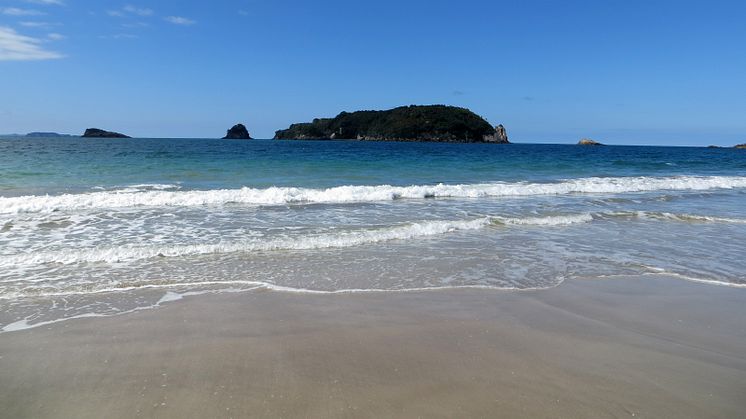
Press release -
E-HICCUP FOR HOLIDAYMAKERS Confusion Reigns Over European Health Insurance Card
- Three-in-five holidaymakers have an EHIC but over a quarter don’t know what it does
- More than one-in-nine have tried to use their EHIC but 57 per cent ran into problems
- Over half those who tried to use the card in Spain and France experienced problems
- Almost two-in-five tourists had accidents on holidays abroad in the past three years
- 4.4 million people suffered injuries abroad that cost more than £1 billion in total
UK tourists jetting off on summer holidays abroad risk laying themselves open to hefty medical bills because of confusion over the benefits offered by a European Health Insurance Card (EHIC). New research by Post Office Travel Insurance reveals that over half of the people who tried to use their card on holiday abroad encountered problems that ended up costing them money, most commonly in Spain and France¹ (http://www.postoffice.co.uk/health-insurance-card).
According to the research three-in-five people hold an EHIC but over a quarter of them (27 per cent) do not understand what it is for or where and how it can be used. Well over half (55 per cent) of those surveyed thought that an EHIC is valid only in the European Union whereas the card, available free from the NHS, entitles holders to state-funded healthcare throughout the European Economic Area (EEA).
Although treatment can be completely free, in many places it is offered at a reduced cost. Yet only a third of those questioned by the Post Office understood that they might have to make a financial contribution. Another third (32 per cent) were under the impression that presentation of an EHIC would entitle them to free NHS-style treatment.
More evidence of confusion came as 25 per cent told Post Office Travel Insurance they thought an EHIC could only be used for emergency treatment. Conversely, almost one-in-20 believed it would cover the cost of being flown back to the UK and similar numbers though it would cover them for private as well as state treatment.
Around one-in-nine holidaymakers said they had used or tried to use their EHIC abroad but well over half (57 per cent) ran into problems that cost them money. 19 per cent had to pay towards the cost of treatment; 15 per cent had to pay their bill and reclaim it via travel insurance, 15 per cent had their EHIC accepted for treatment but had to claim on their travel insurance to return home and almost 10 per cent tried to use their EHIC in a country that was not part of the scheme.
Nick Kennett, Post Office Director of Financial Services, said: “The EHIC should certainly form part of your travel documentation when holidaying in Europe but you really do need to understand its rules. Our research shows that if you rely on an EHIC alone, you could suffer financially at a time when you are likely to feel vulnerable. The EHIC is far from being a substitute for travel insurance, which provides benefits for a wide range of issues including holiday cancellation or curtailment, theft, damage to property and private health treatment.”
Over half of those surveyed who tried to use their EHIC in Spain and France encountered monetary problems, which led to their paying for all or part of their medical treatment. In the case of Spain this follows a series of incidents in 2013 when UK tourists were denied free emergency medical treatment. In some cases the cost of treatment ran into thousands of pounds.
In separate research carried out into accidents and injuries to UK holidaymakers abroad², Post Office Travel Insurance found that more of these happened in Spain than anywhere else. A quarter of people surveyed who needed treatment for sunburn or sunstroke and almost three-in-ten (28 per cent) who slipped or fell by swimming pools were on holiday in Spain.
They were among almost two-in-five (38 per cent) of people who had an accident on holiday abroad in the past three years. Over a third (37.5 per cent) - around 4.4 million holidaymakers - suffered injuries that cost an average of over £252 each and more than £1.1 billion.
The high numbers may be explained, at least in part, by the fact that over a quarter (26 per cent) of people surveyed about EHIC usage did not have a card and a significant proportion of those who did have an EHIC admitted paying for some or all of their treatment.
The research found that animal bites and insect, jellyfish or stingray stings were the most frequent incidents, suffered by 25 per cent of the holidaymakers polled by the Post Office. However, potentially serious issues like food poisoning (14 per cent) and sunstroke or severe sunburn requiring medical treatment (eight per cent) were also commonplace.
Most injuries cost holidaymakers relatively small amounts of money. These ranged from an average of £47 for bites and stings to £118 for sunstroke or sunburn, £121 for a rental motorbike or scooter accident and £150 for a bathroom fall. In all cases this is more than the cost of economy Post Office travel insurance for two people for a one week European holiday.
However, tourists not covered by travel insurance could find themselves paying considerably more than the average bills uncovered by the research. Post Office Travel Insurance found examples of individual injuries caused by bicycle accidents costing around £850 and of a sunburn victim paying around £1,500 for treatment. Some people were particularly accident prone and suffered multiple accidents costing them up to £7,5003.
Post Office Travel Insurance has been voted top travel insurance provider in the annual British Travel Awards for the past eight years. More information about the comprehensive cover it provides can be found at postoffice.co.uk/travelinsurance or at a Post Office branch.
Ends
Categories
About the Post Office
The Post Office (Post Office Limited) has an unrivalled national network of over 11,500 branches across the UK, more than all the high street banks combined, and sits at the heart of communities in Northern Ireland, Scotland, Wales and England. The Post Office has made a commitment to maintaining its network of branches at its current size and reach. It provides around 170 different products and services spanning financial services including savings, insurance, loans, mortgages and credit cards; Government services; telephony; foreign currency; travel insurance and mail services.
The Post Office serves over 17 million customers a week and a third of small businesses. Some 99.7% of the total population live within three miles of a post office and over 97% live with one mile of a post office. For many rural communities, the post office is the only retail outlet. Post Offices branches remain highly valued and trusted, and are the focal point of many communities. For more information, visit http://www.postoffice.co.uk/.
Please note the Press Office team can only deal with enquiries from the media. Unfortunately they do not have access to customer information so can not help with customer enquiries.
If you have an enquiry regarding any Post Office product or service please visit postoffice.co.uk or call 0845 611 2970 Local call rates apply. Call costs may vary depending on your service provider. Calls may be monitored or recorded for training and compliance purposes.



